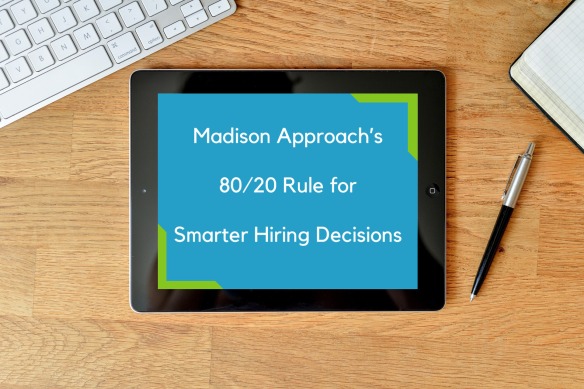 Remember the days of circling classified ads with a red pen? Neither do we. New smartphone apps are revolutionizing job searches and making landing a job easier than ever! With apps that streamline the process of finding a new job, you can say goodbye to navigating endless HR websites, creating log-ins on various sites, and scrolling through irrelevant job listings.
Remember the days of circling classified ads with a red pen? Neither do we. New smartphone apps are revolutionizing job searches and making landing a job easier than ever! With apps that streamline the process of finding a new job, you can say goodbye to navigating endless HR websites, creating log-ins on various sites, and scrolling through irrelevant job listings.
With the recent influx of job search apps offering new organizational tools, databases, and networking opportunities, your smartphone could be the key to landing your new job. However, before you get started searching for jobs, there are a number of steps you can take to ensure that your mobile searches are as effective and professional as possible.
1. Be prepared for a fast-paced application process
Since social media networking makes connecting with potential employers even easier, you should be prepared to send your résumé and cover letters at a moment’s notice. If you are applying to a variety of jobs and positions, you should have at least two or three versions of your résumé on hand, and a cover letter that can be quickly tailored to each specific company.
2. Curate your online presence
Before you begin applying for jobs, first make sure that a quick Google search of your name doesn’t reveal anything that you wouldn’t want an employer to see. Go through your social media platforms and either make them private or remove any inappropriate information or photos.
Once your personal platforms are protected and professional, create or update your profile on LinkedIn. Begin networking with professionals in your field, searching for potential recruiters or employers, and setting up your skills list to be verified by your content. Now that more applicants are using mobile apps and online databases than ever before, your online presence should be dynamic, compelling, and attest to your ability to communicate your ambitions and expertise.
3. Finding the right apps for your job search
Dozens of new apps offer organizational tools, streamlined application processes, and networking opportunities. Here are some of the top-rated new apps that can let you search for jobs away from the glare of your laptop:
Jobaware
As the highest-rated iOS job search app, Jobaware allows you to easily apply to jobs from your phone. Its autofill feature will automatically fill out applications for you, and it even syncs with your LinkedIn profile and keeps track of all your job search activity. You can also access and compare jobs in different cities, and set alerts for job postings at specific companies.
Simply Hired
Boasting 30 million job seekers, Simply Hired uses personalization technology matches to find jobs that fit your specific skills and experience. In addition to suggesting jobs based on your preferences, Simply Hired will ensure that you never miss out on a job posting. By subscribing to a job category on Simply Hired, you’ll receive notifications each time a new job is posted.
Job Search by Glassdoor
Job Search allows you to look for jobs based on specific requirements, such as location and salary, and also provides an inside look at certain companies. As a “job community,” Job Search puts you in touch with a company’s current employees, grants access to company reviews, and helps candidates have a greater understanding of what it’s really like to work at the company.
4. Stay Organized
Searching and applying for jobs is easier than ever, but sometimes it can be difficult to keep track of all of your applications, responses, and follow-up deadlines. Apps like JobHero allow you to search for jobs, track your applications, and manage your job searches. JobHero boasts user-friendly organizational tools that can link your social media platforms, set reminders for deadlines and follow-ups, and upload relevant documents.
While smartphone apps can simplify your job hunt, it is important to stay organized, build a professional online presence, and actively seek new contacts online. Before you dive into the world of mobile job searching, make sure that you have all necessary documents at your fingertips, and a clear idea of your goals and ambitions.
5. Start a blog or online portfolio
A personal website can provide more detailed information than your LinkedIn summary will allow and can help you reach a larger audience. Platforms like Squarespace and wordpress streamline the process of creating a personal website, and will grant you a space to independently present yourself as an impressive candidate. By linking to an online portfolio of your relevant work, you can demonstrate to employers that you are a pro-active job seeker and that you have an impressive online presence.
6. Network, network, network
Once you have your résumé and LinkedIn profile ready for view, begin networking with professionals in your field. Request informational interviews, connect on LinkedIn, and seek mentorships through social media platforms and groups. Apps such as Job Search can connect you to current employees and give you a better feel a company’s professional environment. With impressive and ambitious profiles on social networks, you will position yourself as an exciting potential employee, and most professionals will be happy to answer your questions or help you find the contacts you need for landing a job.
Ready to start your job hunt? Try the Madison Approach Staffing Job Board!














